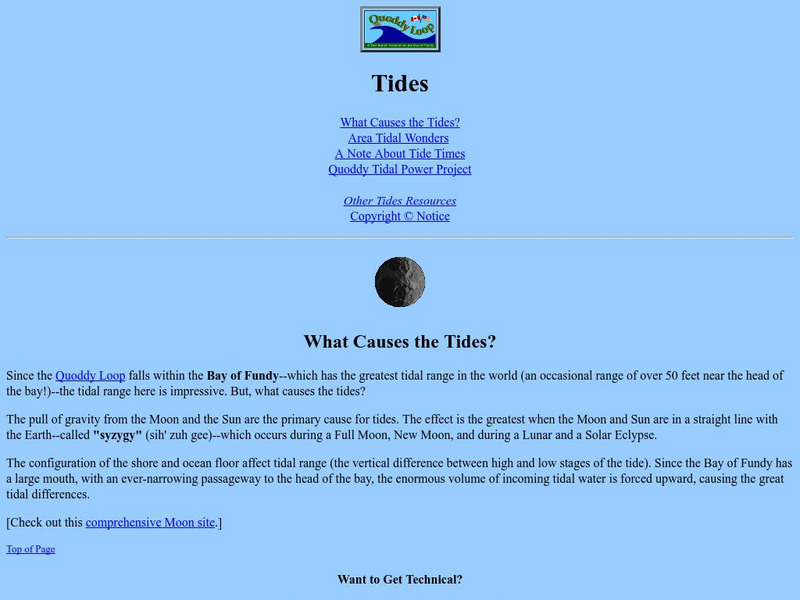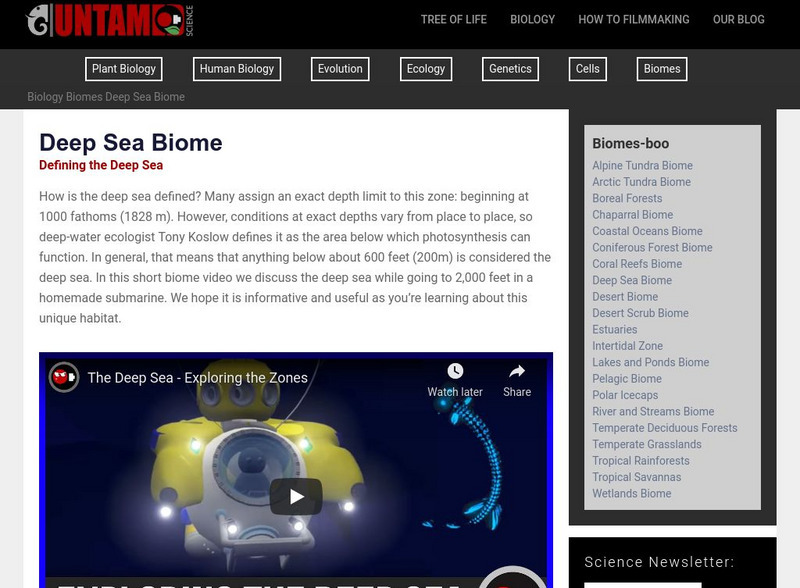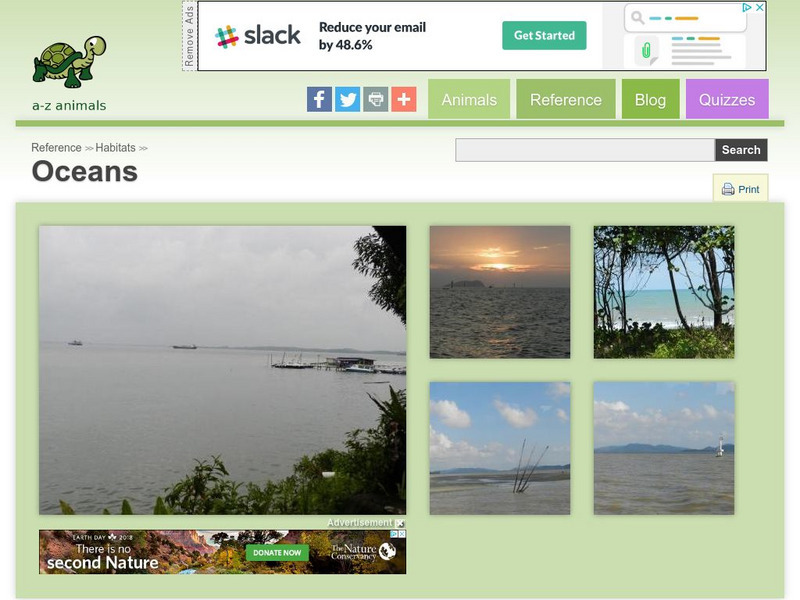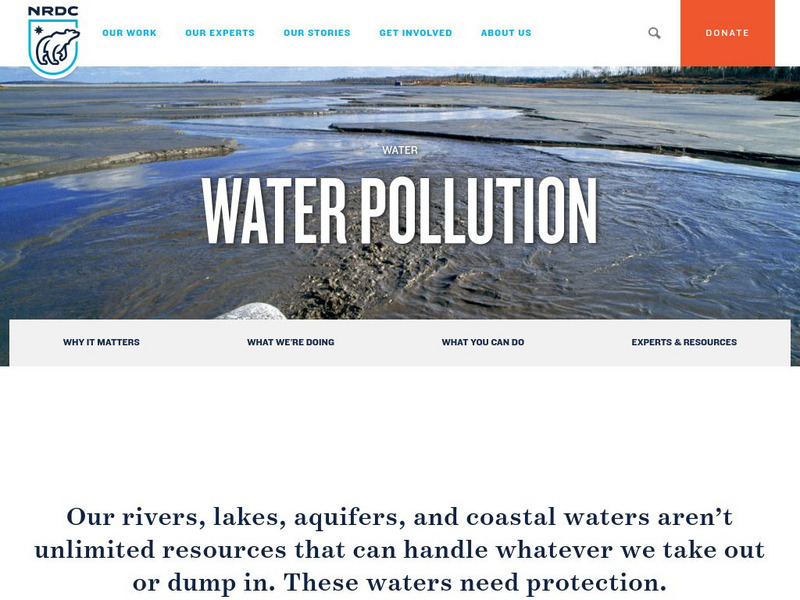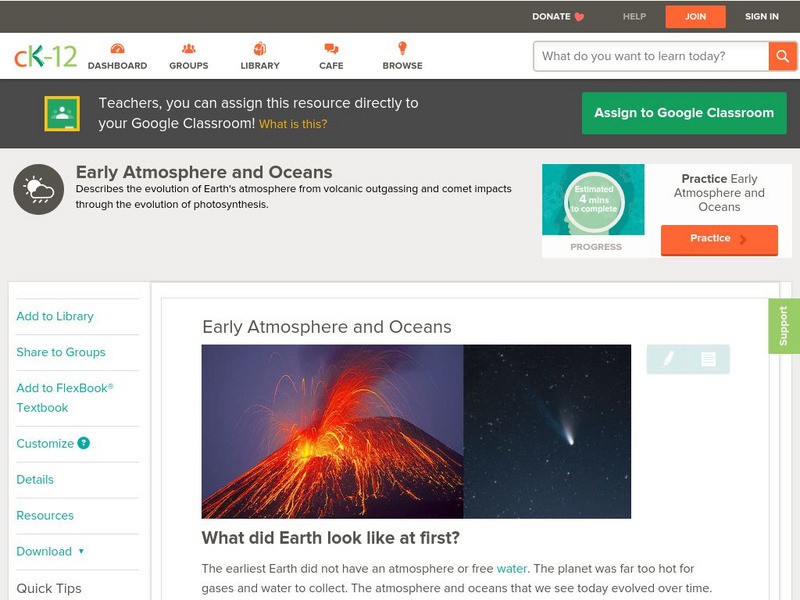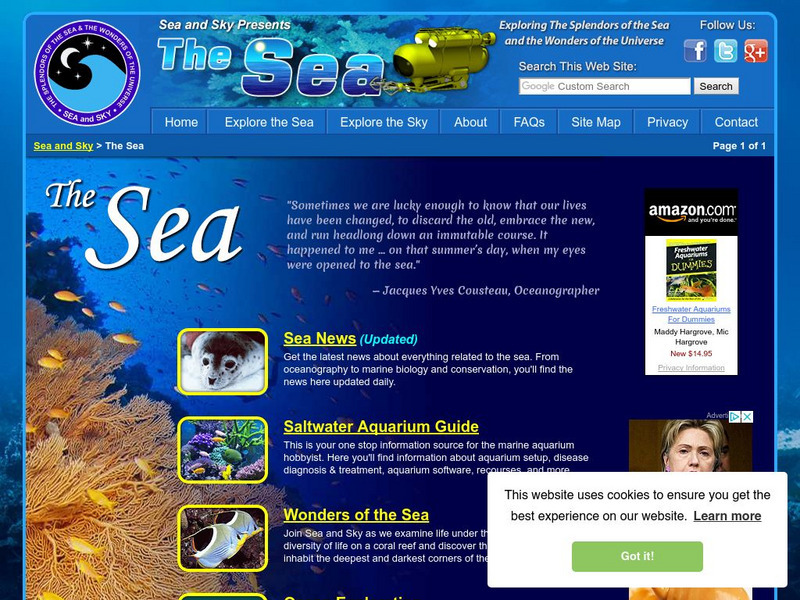Hi, what do you want to do?
Exploring Nature
Exploring Nature Educational Resource: Oceans of the World
A set of illustrated fact pages, and some activity sheets, on coral reefs, tidal pools, and ocean ecosystems. Find maps, graphic organizers, and a movie link to tidal zones. Hyperlinks to specialized vocabulary words are also provided....
Vocabulary University
My vocabulary.com: Oceans
This page has a variety of vocabulary puzzles and activities using 20 vocabulary words pertaining to oceans. It also offers an extensive list of ocean and maritime vocabulary and some lesson plan ideas.
Other
Quoddy Loop: Tides
This resource gives an in-depth description of the Quoddy Loop of Islands within the Bay of Fundy. This area has the greatest tidal range in the world. Learn what causes these massive tides.
The Franklin Institute
Missouri Botanical Garden: Ocean Facts
Click on all the links to find out many interesting facts about the ocean. Why is the ocean blue? Why is it salty? Where do most of the animals and plants live? Which ocean is the biggest? The deepest? How much of the Earth is covered by...
The Franklin Institute
In Quiry Almanack: Undersea and Oversee
Dive into a greater understanding of the oceans by tagging along on this exploration of the oceans.
Australian Broadcasting Corporation
Australian Broadcasting Corporation: Oceans Alive: Cool, Wet Facts
Did you know that turtles migrate 1400 miles to lay their eggs? Did you know that penguins swim underwater at 55 MPH? Click on this site to learn more interesting facts.
NOAA
Noaa: Pmel: The North Pacific Ocean
This site includes a map of the North Pacific Ocean, links to the surrounding islands, the ocean currents, and more about the North Pacific.
Other
Lunar and Planetary Institute: Oceans From Space
This collection of photographs from space-shuttle missions shows some features of oceanic circulation that simply cannot be seen from any other vantage point. This site is a great resource for many different topics of study.
National Geographic
National Geographic: Geostories: Ocean Exploration
This Geostory illustrates pivotal events in undersea understanding.
National Geographic
National Geographic: Our Hydrosphere
After learning about the Earth's hydrosphere and its major components, students look at the interconnections within the hydrosphere and with humans. Includes a vocabulary list with definitions.
World Wildlife Fund for Nature
Wwf: Our Earth: Ecoregions: Habitats: Oceans
An introduction and overview of the ocean habitat, the largest habitat on Earth. Includes links to information about three animals that live in this habitat.
Sophia Learning
Sophia: Oceans and Global Climate
This lesson will describe the effect that oceans have on the global climate.
Untamed Science
Untamed Science: Biology: World Biomes: Deep Sea Biome
Read about the different zones and life in the deep sea as well as watch videos and examine photos of this aquatic biome. [5:54]
NASA
Nasa: Climate Kids: Gallery of Oceans
A collection of images showing Earth's oceans and how they are affected by climate change.
A-Z Animals
A Z Animals: Reference: Habitats: Oceans
Learn about the ocean ecosystem, and how its characteristics affect the life within it.
Other
Nrdc: Clean Water and Oceans
What prompted congress to pass the Clean Water Act? Has this legislation been successful? The Natural Resources Defense Council offers information on fresh and ocean waters, pollution control, conservation, and more.
American Museum of Natural History
American Museum of Natural History: Creature Feature
A matching game where students match different ocean creatures to their adaptations for survival.
CK-12 Foundation
Ck 12: Earth Science: Early Atmosphere and Oceans
[Free Registration/Login may be required to access all resource tools.] How Earth's atmosphere and oceans formed.
CK-12 Foundation
Ck 12: Earth Science: Importance of the Oceans
[Free Registration/Login may be required to access all resource tools.] How the oceans sustain life, are part of the water cycle and moderate climate.
CK-12 Foundation
Ck 12: Earth Science: Importance of the Oceans
[Free Registration/Login may be required to access all resource tools.] How the oceans sustain life, are part of the water cycle, and moderate climate.
Scholastic
Scholastic Explorers: Ocean Life
This lesson plan explores how human activity has an impact on turtles, sea otters, and dolphins in different parts of the world. Your young scholars will read field reports from the sites and evaluate data that is offered.
Read Works
Read Works: Climates: An Introduction to Climates
[Free Registration/Login Required] An informational text about climates. A question sheet is available to help students build skills in reading comprehension.
National Earth Science Teachers Association
Windows to the Universe: Earth's Oceans
Windows to the Universe provides a general overview of the importance of the oceans and seas to the Earth. Content includes information on how the oceans impact Earth's weather and contribute to the water cycle.
Other
Sea Sky: Explore the Sea
Climb aboard this submarine and explore the sea. This site has pictures and information about the oceans, coral reefs, as well as famous explorers of the deep. You can also play interactive games.







